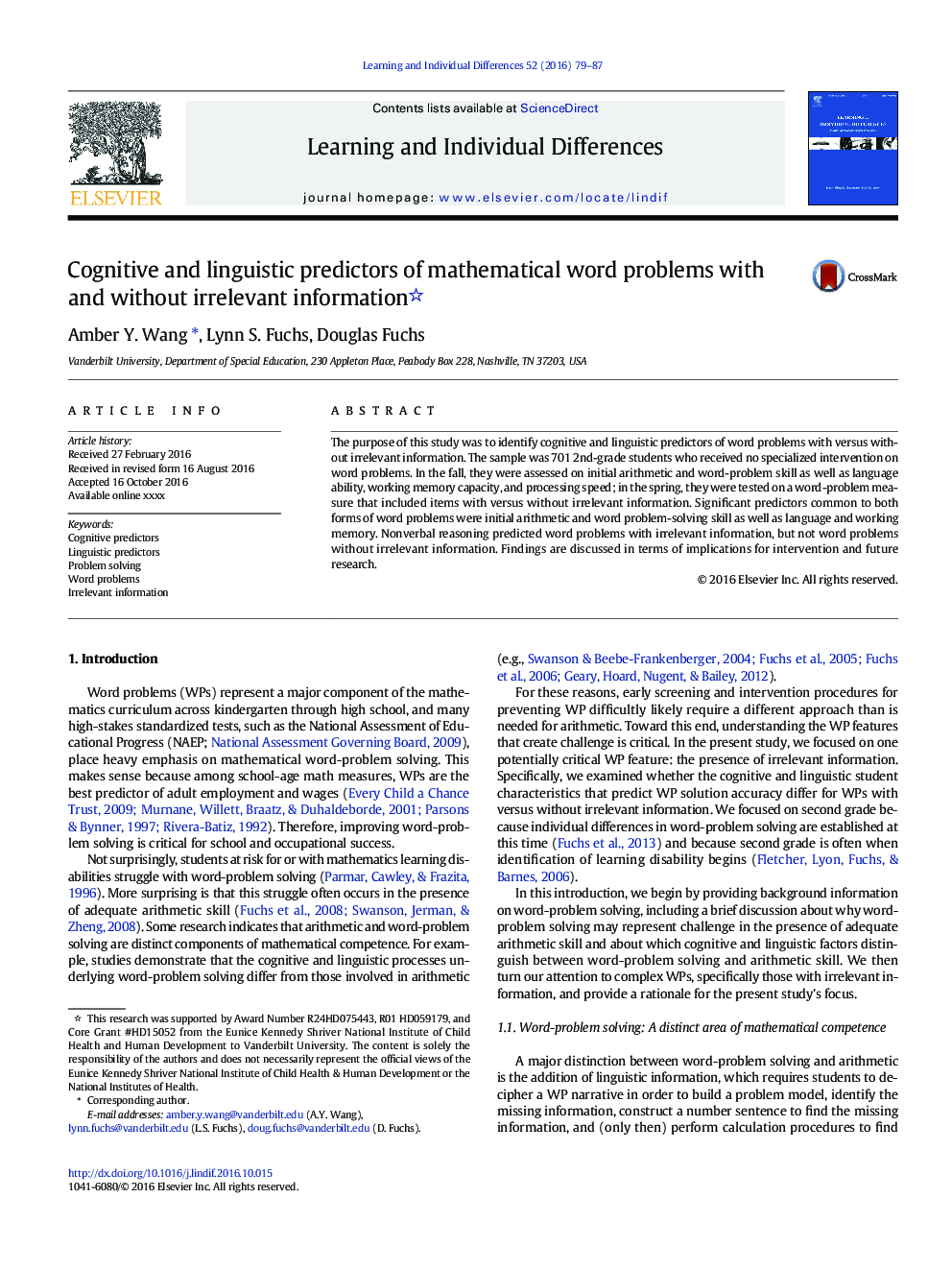| Article ID | Journal | Published Year | Pages | File Type |
|---|---|---|---|---|
| 4940071 | Learning and Individual Differences | 2016 | 9 Pages |
Abstract
The purpose of this study was to identify cognitive and linguistic predictors of word problems with versus without irrelevant information. The sample was 701 2nd-grade students who received no specialized intervention on word problems. In the fall, they were assessed on initial arithmetic and word-problem skill as well as language ability, working memory capacity, and processing speed; in the spring, they were tested on a word-problem measure that included items with versus without irrelevant information. Significant predictors common to both forms of word problems were initial arithmetic and word problem-solving skill as well as language and working memory. Nonverbal reasoning predicted word problems with irrelevant information, but not word problems without irrelevant information. Findings are discussed in terms of implications for intervention and future research.
Related Topics
Social Sciences and Humanities
Psychology
Developmental and Educational Psychology
Authors
Amber Y. Wang, Lynn S. Fuchs, Douglas Fuchs,
